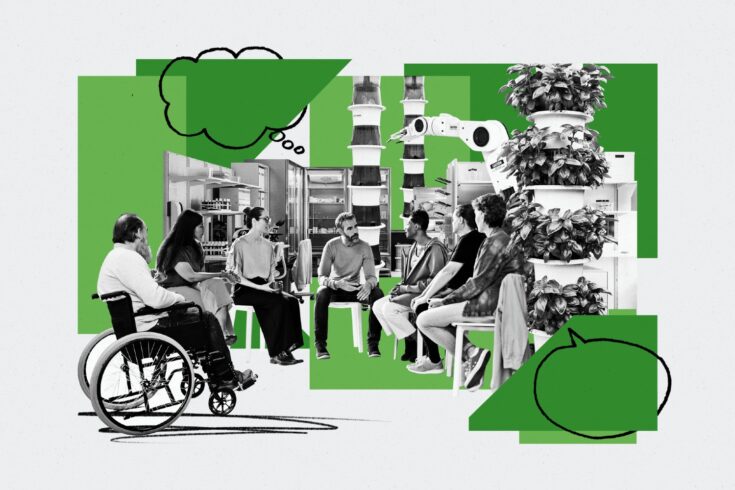I arrived at UKRI 4 years ago with the fascinating and challenging task of developing UKRI’s strategy to involve the public in research and innovation. I’ve worked with amazing colleagues and partners in that time and we’ve done a lot: funded citizen science projects involving climate research, ran public dialogues on the future of flight and developed new approaches to supporting engagement between researchers and local communities.
What I’ve learned in the last 4 years is that collaboration with wider society really does lead to better research and innovation.
Gaining new insights
Involving the public even at the very early stage of programme development leads to insights that wouldn’t otherwise be available to policymakers. To take one example, we ran a public dialogue with NERC on their Healthy Environments funding stream. One important insight was that communities saw equal access to the environment as a key attribute of a healthy environment. These insights have been built into the funding programme.
I often see how valuable policymakers and research managers find these discussions with people who aren’t specialists in their area. A key task for UKRI is trying to work out what a strategic approach to this kind of engagement can look like.
When it comes to involving the public in research, there are lots of brilliant examples of how to do it.
The Adolescence, Mental Health and the Developing Mind programme funds projects that examine how mental health problems emerge in young people. Young people are a key part of both shaping the funding opportunity and delivering the research projects. We’ve also seen many valuable insights from the Connected Communities Programme, designed to help us understand the changing nature of communities and the role of communities in sustaining and enhancing our quality of life.
Another example is the UK Climate Resilience programme. The UK needs to adapt to the risks posed by climate change, such as flooding and extreme heat. This programme has funded projects that bring researchers, communities and local decision makers together to create local action plans and community-led approaches to flood risk.
Engaging, not just communicating, makes the difference
What these funds show is that public engagement is not just about communicating the findings of research, but that the public have valuable knowledge and expertise to contribute to the research and innovation process. However, surveys show that most engagement done by researchers involves communication of research findings – for example a lecture, podcast or a blog. Part of this is undoubtedly because researchers are busy and the R&I system needs to do much more to incentivise in-depth interactions. A key task for UKRI is working out how to support this more in-depth engagement.
What we’ve seen through our partnerships with the Young Foundation, Institute of Community Studies and British Science Association is that some groups need more support than others to participate. Many people around the UK feel that research and innovation are a remote and elite set of activities that aren’t relevant to their daily lives. After commissioning research and talking to communities around the UK, we’ve seen that we need a more fundamental shift to support these groups: long-term support and capacity building for underrepresented communities to engage with R&I.
New programmes reflect an important shift in how to involve communities
As a result, we’ve launched 2 new flagship funds to support communities around the UK to engage with research and innovation: the Community Research Networks programme and the Community Knowledge Fund. The first is an ‘infrastructure’ and capacity building programme and the second is a pilot that gives funding directly to communities. I believe they signal an important shift in how funders can involve communities in research and innovation, by changing funding processes so that funding goes directly to communities, by involving communities in deciding what knowledge and innovation is needed and by building long-term relationships with communities.
So what’s next?
UKRI’s new Public Engagement Strategy, published this week, has 3 goals:
- build a sense of shared endeavour by making research and innovation relevant and accessible to all
- make sure the benefits of research and innovation are shared widely by supporting collaboration and valuing diverse forms of knowledge
- create opportunities for all by inspiring and engaging the next generation
Following the publication of the strategy, we will be working closely with UKRI colleagues, drawing on their knowledge and expertise to develop a strategic, cross-UKRI approach to public engagement. In doing this we hope to create a research and innovation system that is relevant and accessible to everyone.




